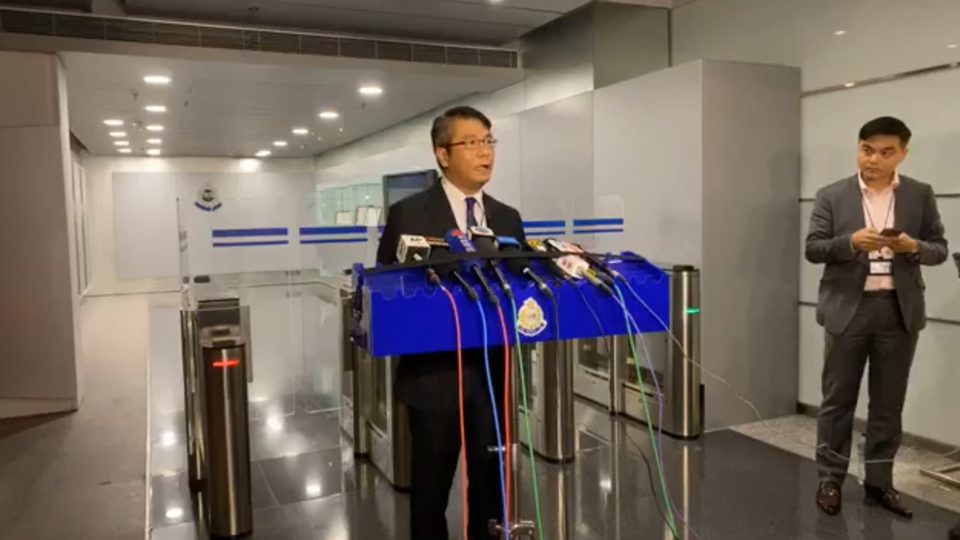Four people affiliated with the pro-democracy fundraising group Spark Alliance were arrested yesterday on allegations of money laundering over their work securing crowdfunding to cover, among other things, legal representation for arrested Hong Kong protesters.
At a police press conference yesterday, acting Senior Superintendent Chan Wai Kei of the Joint Financial Intelligence Unit of the Narcotics Bureau said that police had arrested three men and one woman, aged 17 to 50, on suspicion of money laundering in connection to the group, which was founded in the aftermath of the Umbrella Revolution.
Chan did not, however, explain the nature of the laundering, which under Hong Kong law is often defined in relation to drug trafficking or terrorist financing.
Police seized $HKD1.3 million (nearly US$167,000) in cash, along with six arrows, two laser pointers, and supermarket vouchers valued at $HKD1.6 million (about US$205,000). The police also froze a $HKD70 million (US$8.97 million) account over the suspicions.
According to HK01, those arrested included a 17-year-old student surnamed Yue, a 22-year-old clerk surnamed Lui, a 28-year-old clerk surnamed Ng, and a 70-year-old HR manager surnamed Wong.
Superintendent Chan said that they were suspicious of the activities of a shell company that controlled the frozen account whose transactions and investments were allegedly “incommensurate” with the stated purpose of its business.
Back in October, HSBC had ordered the owners of a corporate account linked the to the organization to remove the funds and close the account over similar concerns, the SCMP reported at the time.
According to Chan, “a certain portion” of the organization’s funds went towards investing in insurance, while the rest went to the shell company, whose head, police allege, was the beneficiary of the “personal insurance products” purchased with the funds.
“Based on these money laundering hallmarks, we made arrests today,” he said.
He added, without offering any substantiating evidence, that police “do not exclude the possibility that the fund is used as a reward to encourage teenagers to come out and join in the civil unrest.”
Chan maintained that “a lot of the money was given to a lot of different people involved.”
Chan said police had also found a receipt showing a list indicating the purchase of helmets and other equipment in the amount of HK$3,000 (about US$385).
In a statement last night, Spark Alliance said it was unable to comment in detail because the case was under investigation, but disputed the police’s characterization of their activities.
“The police have attempted to distort the truth by associating this platform with money laundering operations and other such malicious acts in an attempt to discredit our reputation and other support channels,” they said. “This platform strongly condemns such false accusations.”
Police say they are still investigating the actual source of the funds, which under the law, would appear to factor heavily into whether laundering was actually committed.
According to the Joint Financial Intelligence Unit, to which Chan belongs, “a person commits the offense of money laundering if he deals with any property, including money, which he knows or has reasonable grounds to believe to be proceeds of drug trafficking [or an] indictable offence.”
Hong Kong’s anti-terrorism financing laws, which also deal with laundering, state that “a person commits the offense of terrorist financing if he provides or collects any property knowing or with the intention that the property will be used for terrorist acts.”
As Hong Kong’s long-running protest movement intensified, mainland officials began employing characterizations like “terrorist-like actions” to describe protesters’ tactics, though local authorities so far appear to have largely refrained from using that terminology themselves in official settings.




